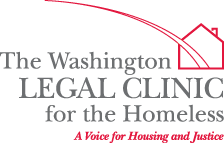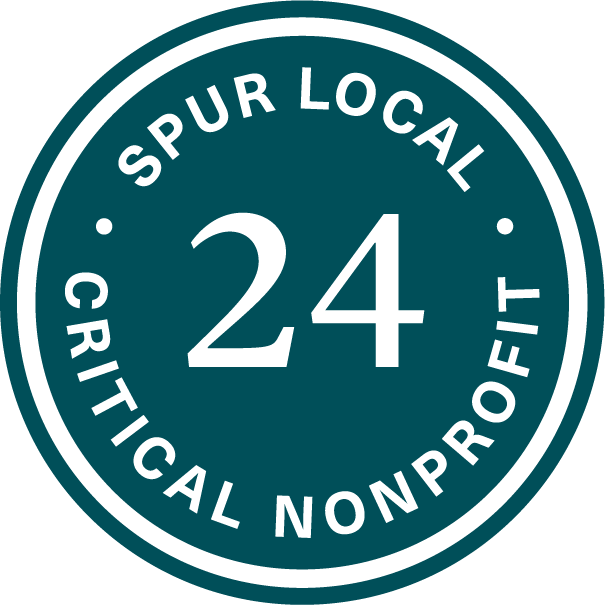The Migrant Services and Supports Emergency Act of 2022 is nearly completely a poisoned apple– it may look like a ripe, shiny apple at first glance, but it only takes one bite to feel its poison. [New: take action here!]
DC is a sanctuary city, which is supposed to mean our services and policies are welcoming to immigrants, documented or not, and we are committed to providing safe respite from federal immigration enforcement. DC should be providing anyone within our quasi-state borders the services and assistance they need to meet their basic needs, to travel on their way to their final destination, and to make DC their home if choose to stay here– regardless of what state or country a new resident has come from. Immigrants of all countries of origins, languages, and incomes should be welcomed and supported as new residents. We reject any assertion that immigrants are in competition with long-time DC residents for resources, as DC has sufficient resources to meet the needs of all who come here. Similarly, we reject the scarcity mindset that leads to pitting these populations against each other.
Starting this summer, when Arizona and Texas began busing migrants to DC, numerous migrants and mutual aid workers (who stepped in to help when the DC government failed to do so) reached out to our office for assistance. There were concerns about the segregation of families outside of the shelter system into hotels on New York Ave with no access to services, including helping families register their children for school. We heard complaints about staff treatment in the hotels the families were placed in, the conditions of the hotels, and the time it took to transport children to school from the hotels. One woman reached out because the government told her family they could not stay together.
DC was caught flat-footed to some degree, so it is understandable that there were bumps in the road. Ten members of the DC Council urged the Mayor to devote resources to this crisis in July. Even the Washington Post Editorial Board (traditionally quite supportive of Mayor Bowser) urged her to back her “sanctuary city” rhetoric with actions and policies. While we certainly could argue, as many have, that a coordinated response should have come more quickly, we were nonetheless happy to see the mayor announce the funding and creation of the Office of Migrant Services.
But then we read the emergency bill Mayor Bowser sent to the Council.
Below is our initial analysis of the bill, which will be voted on on Tuesday, September 20. (Caveat: we are basing our analysis on a draft bill that may have changed or will change by Tuesday.) We have marked whether we believe each section is helpful (green) or harmful (red). You can also read an analysis of the bill by our colleagues at the Legal Aid Society here.
- Establishes an office to provide a variety of services to recent immigrants, including those who are on their way to another state (who are not now eligible for any homeless services).
- States that temporary shelter may be provided in congregate settings, meaning shared living and bathing facilities. Families experiencing homelessness are by law required to be placed in private rooms due to serious concerns about the safety and privacy of children. (This is the second time Mayor Bowser has tried to remove that protection for families. The last time was in 2015.)
- Gives the Mayor unfettered discretion in determining who is or is not eligible for these services.
- Allows the Mayor to enter into contracts or provide grants to organizations to provide services.
- Update: this section has been fixed! Removes oversight for any such contracts, an important check on mayoral authority.
- Excludes services provided by the Office of Migrant Services from the Homeless Services Reform Act, meaning that migrants will not have statutory eligibility (including who qualifies as a family), client rights, written notices of adverse action, or ability to appeal denial or termination of services, among many other statutory (and Constitutional) protections. They also have no right to shelter in extreme weather.
- Eliminates receipt of DC Healthcare Alliance as a way of proving DC residency for homeless services. This exclusion will likely exclude many undocumented immigrants from homeless services, whether they are recent migrants or not, and many non-immigrants as well. DC Healthcare Alliance is one of the only public benefits other than shelter that is available to undocumented immigrants, and very few undocumented immigrants will have any of the other acceptable documents to prove DC residency.
- Update: this section has been removed! Doubles the verification requirement to prove DC residency. This amendment does not just apply to recent migrants or immigrants in general. If this bill passes, many longtime DC residents will be denied shelter because they cannot provide two different types of proof that they live in DC and intend to stay here. The DC Council rejected Mayor Bowser’s attempt to make this very amendment 5 years ago, in 2017: “The original bill would have expanded the list of acceptable documents to prove D.C. residency, while increasing the number of documents applicants must provide, from one to two. The [Human Services] committee rejected the increase and altered language so that receiving assistance from a different arm of city government would be sufficient to prove residency.”
- Removes or drastically limits the exemption for providing proof of residence for people seeking asylum or refuge. While the Council in 2017 rightfully recognized and required that victims of domestic violence, people seeking asylum, and refugees would be unable to provide proof of DC residency, this bill narrows that exemption and excludes anyone eligible for services under the Office of Migrant Services under this bill. The impact will be that recent immigrants seeking asylum or refuge will be required to provide two documents to prove their DC residency, which would almost completely negate the well-founded exemption and result in immigrant families being excluded from lifesaving shelter.
The bill explicitly segregates services based on the applicant’s country of origin or how recently they have immigrated and provides a lesser level of services and rights to recent immigrants, explicitly removing the rights and protections that other people without homes are entitled to in DC. It creates a sub-class of people, and provides no assurance of high quality services to meet their needs. At the same time, it poisons the eligibility process for non-immigrants and immigrants who have been here longer, by making it doubly hard for families to prove eligibility for shelter, despite explicit rejection of that proposal five years ago.
More subtly, but equally harmful, the bill would create a system where, contrary to two decades of a policy that DC government shall not ask public benefit applicants about immigration status, the only way to implement this bill is to ask people about their immigration status and history. See Mayoral Order 92-49, dated April 29, 1992. Asking shelter or service applicants about country of origin, or immigration status, in order to determine eligibility for homeless services or to refer to the new Office will deter people from seeking lifesaving public benefits, such as shelter. We know this, which is why we prohibit the DC government from asking these questions.
We are asking the DC Council to reject the Migrant Services and Supports Emergency Act of 2022 as written and give it a complete overhaul. We would support a bill that:
- Requires that specialized services and resources are provided to migrant community;
- Ensures services are culturally competent and accessible;
- Supplements gaps in other systems, such as ensuring migrants who do not intend to remain in DC, therefore would not be considered DC residents for purposes of other public benefits, are served by the Office of Migrant Services; and
- Ensures basic due process and other legal rights to recipients of services.
We will not support a bill that:
- Endorses or creates a system that will be used to segregate migrants against their will;
- Will be used to justify denying migrants mainstream services if that is what they choose, such as shelter; or
- Will be used to further limit the right to shelter, define people out of homelessness who are in fact homeless, or increase bureaucratic barriers to shelter such as residency documents.
Take Action! Contact your councilmember, including “at-large” members and the Chair, and tell them to vote no on this bill unless it is amended to protect the rights of immigrants and all people experiencing homelessness. Contact amber@legalclinic.org for more information or to sign onto a letter to the Council to demand a more just law.
You can use the contact information below or do this one-click email to reach all of them!
| Councilmember | Ward/at-large | Twitter handle | |
| Brianne Nadeau | 1 | bnadeau@dccouncil.gov | @brianneknadeau |
| Brooke Pinto | 2 | bpinto@dccouncil.gov | @brookepintodc |
| Mary Cheh | 3 | mcheh@dccouncil.gov | @marycheh |
| Janeese Lewis George | 4 | jlewisgeorge@dccouncil.gov | @Janeese4DC |
| Kenyan McDuffie | 5 | kmcduffie@dccouncil.gov | @kenyanmcduffie |
| Charles Allen | 6 | callen@dccouncil.gov | @charlesallen |
| Vincent Gray | 7 | vgray@dccouncil.gov | @VinceGrayWard7 |
| Trayon White | 8 | twhite@dccouncil.gov | @trayonwhite |
| Anita Bonds | At-large | abonds@dccouncil.gov | @AnitaBondsDC |
| Christina Henderson | At-large | chenderson@dccouncil.gov | @chenderson |
| Elissa Silverman | At-large | esilverman@dccouncil.gov | @tweetelissa |
| Robert White | At-large | rwhite@dccouncil.gov | @CMRobertWhiteDC |
| Phil Mendelson | Chair | pmendelson@dccouncil.gov | @ChmnMendelson |
Update: On Tuesday, September 20, 2022, the DC Council passed the emergency legislation without making the changes that we advocated for. Councilmember Pinto tried to amend the bill to remove many of the harmful provisions and to add in legal and safety protections for migrants. Councilmembers Silverman, Lewis George and Gray voted for her amendment, but it failed 9-4. There is still a chance to undo the damage, though, in the temporary and permanent legislation. Councilmember Nadeau has set a hearing for October 20 on the bill, and has pledged to continue to work on changes, despite her strong opposition to Pinto’s amendment.
Here are some ways to get involved:
- Reach out to amber@legalclinic.org to stay involved in this campaign or to sign onto the letter.
- Sign up for the hearing on October 20.
- The Migrant Solidarity Mutual Aid Network is holding a webinar about their work Thursday, 9/29, 6-7pm, and Friday, 9/30, 12-1pm. Sign up here: bit.ly/txsolidarity-webinar.
- Read more about the impact of the bill from immigration and public benefit experts at Legal Aid here.
- Reach out to the members of the Human Services Committee (Nadeau, Pinto, Lewis George, Robert White, and Silverman) and tell them to fix this bill, and not segregate or exclude immigrants from DC services.





